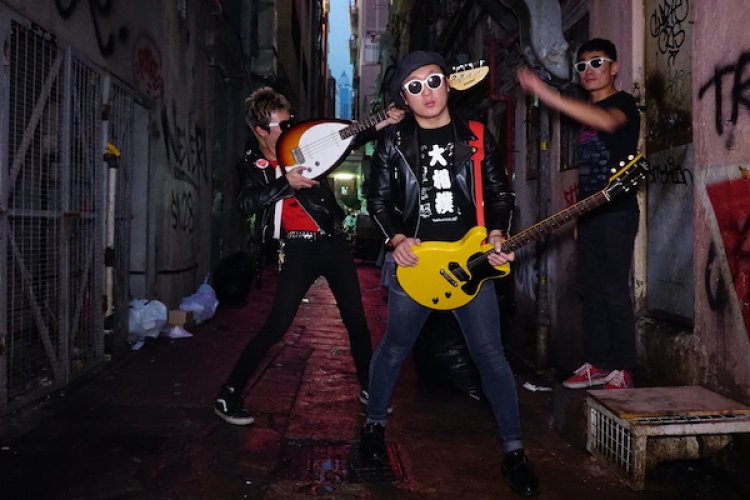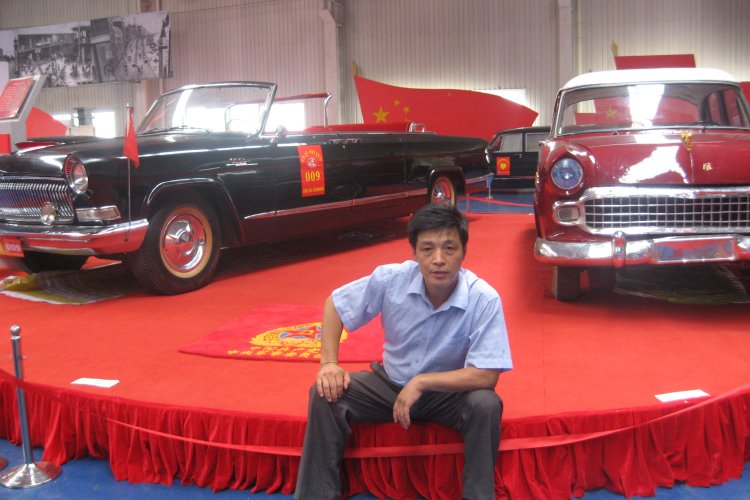Andrew Bull In a China Shop: Charting the 50 Year Legacy of China's Most Prolific DJ and Impresario
Whether you’ve spent a night getting lost in the aural euphoria of Aurora, Zhao Dai, Lantern, and Dada, or watched a live band tear the roof off of Tango and Omni Space, you largely have one man to thank – Andrew Bull, aka DJ El Toro – a British native who, 50 years ago, decided to quit school and head for the humid, sub-tropical climes of Hong Kong.
I spoke with Bull over the phone ahead of 50 Years On the Decks: 1970-2020, a celebration of his illustrious and iconic career, at Dada Beijing this Friday.
Between 1970 and 1972, Andrew Bull would spend the holidays in Hong Kong with his father, a member of the British army stationed in the then-UK territory. Despite only being in his teens, he somehow managed to ingratiate himself into Hong Kong’s radio industry, covering everything from local typhoons to a visit from famed-James Bond actor, Roger Moore. Needless to say, for a fresh-faced kid coming out of the dreary back alleys of grey-skied Britain, it was the stuff of dreams.
“When my parents ended their tour of duty in ’74, I was about 16 or 17, and I managed to persuade them that I was going to leave school and continue with the stuff I was doing in Hong Kong,” Bull tells the Beijinger.
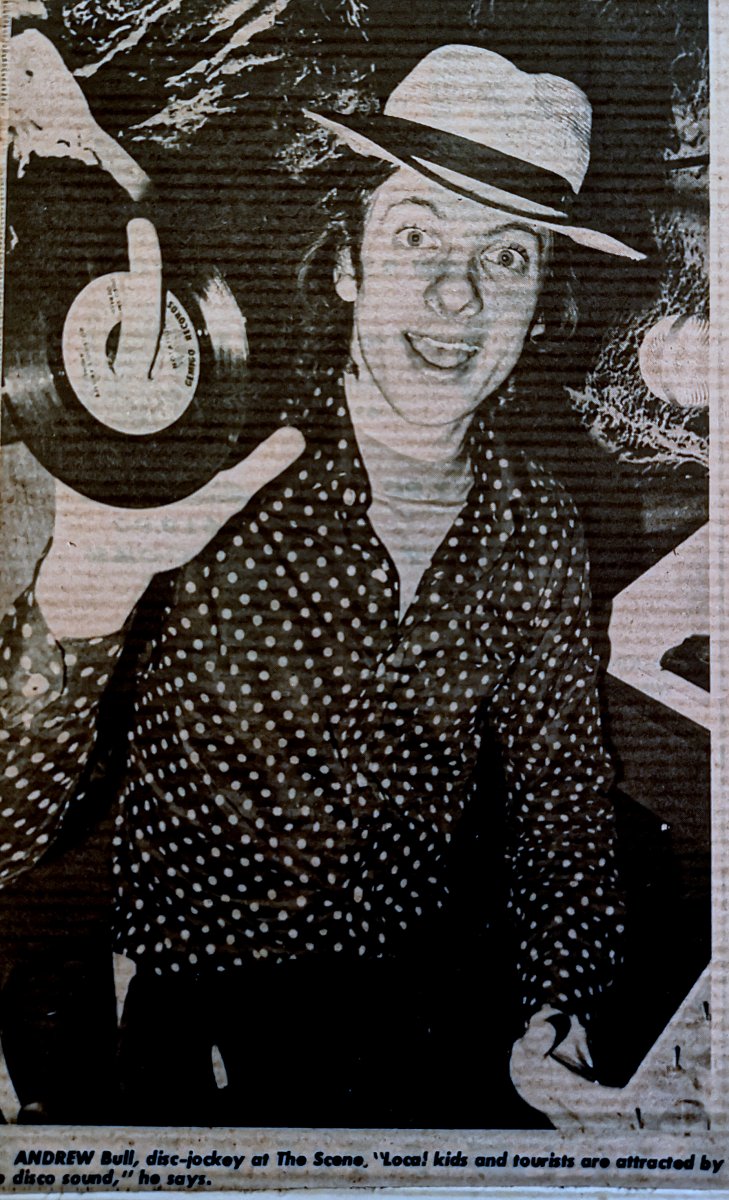
At the same time, after a friend of his who served as the resident DJ at The Scene, a club in Kowloon’s Peninsula Hotel “was sick or had a date or something,” Bull was asked to fill in. “It was the first time I played for a live audience, and from that moment, both me and the audience realized we had something going on,” says Bull. “That night transformed me into a DJ,” catapulting the young music fan into a relentless schedule of DJing six hours a night, six days a week, for the next 12 years.
To be sure, Bull not only found himself in a place that was leagues behind more established cities like New York and Los Angeles but also during a time in which club music was experiencing some growing pains.

“Discotheques in the 60s were groovy and sexy, but that burned out pretty quickly because the way the music was presented was basic," explains Bull. "Seven-inches and shouting between the songs, it was destined to fail. So by the time I came on the scene, it was the early days of Barry White, there was Hues Corporation’s ‘Rock the Boat,’ there was ‘Kung Fu Fighting.’ So it was like: Wait a minute, we need to dance to this!”
Likewise, thanks to the advent of 12-inch singles and Technics turntables with variable speed, a perfect storm was brewing, one from which a new era of parties could emerge.
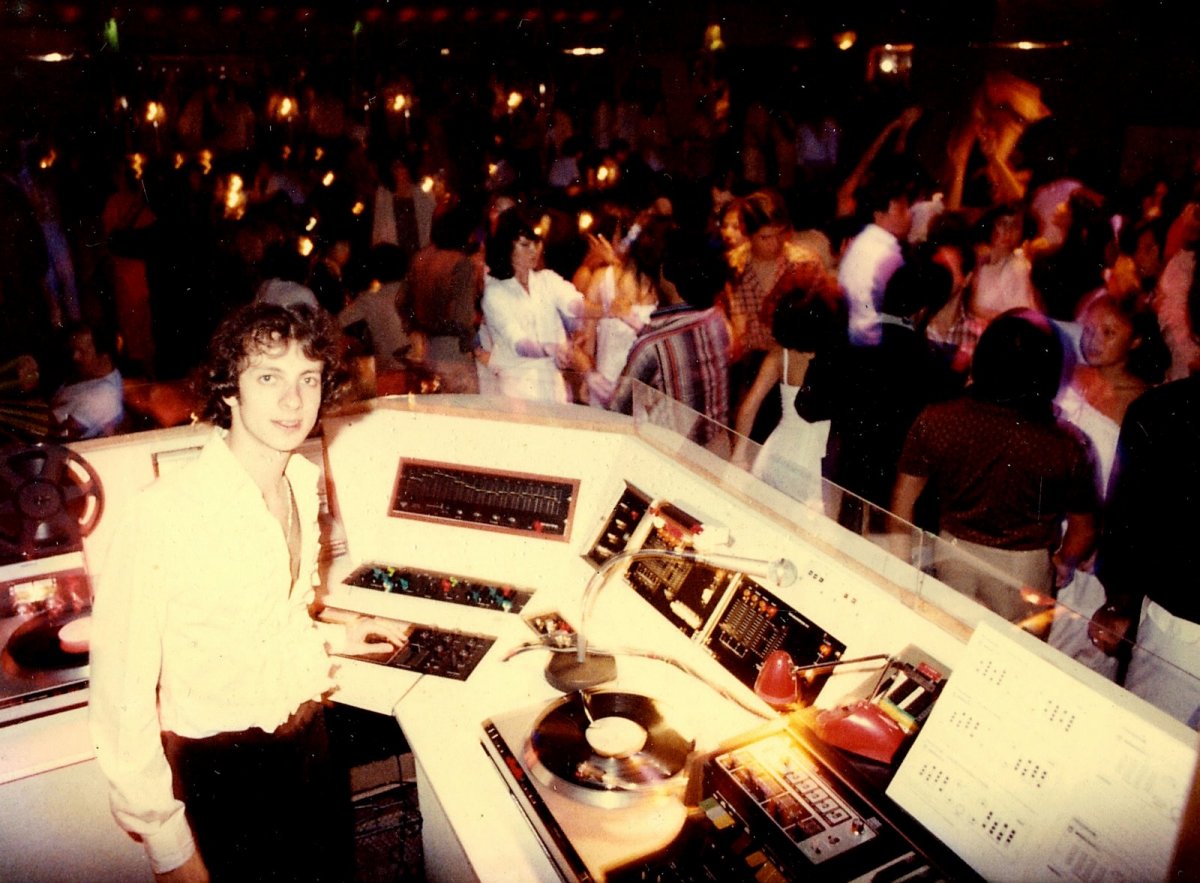
The result: Non-stop disco mixing which allowed Bull to “hypnotize audiences and take them on journeys.” It was an experience unheard of in Hong Kong and people went wild for it. Unfortunately, however, the vinyl market inside Hong Kong was limited at the time, reduced to a few local pressings and 45s, altogether bereft of the 12-inch disco singles that were integral to keeping the energy up during a set. What’s more, the club scene was beginning to explode at places like Studio 54 in New York and the Trocadero Transfer in San Francisco. In order to replenish his coffers and ensure that Hong Kong kept pace with its counterparts in the West, Bull would make thrice-yearly pilgrimages to the US, returning home with 100 vinyl in tow every trip. An impressive feat to be sure, as schlepping a few dozen records to a gig and back is no walk in the park. But a schlep that was worth it nonetheless, as Bull cites introducing the 12-inch disco single to Asia as one of his life’s crowning achievements.
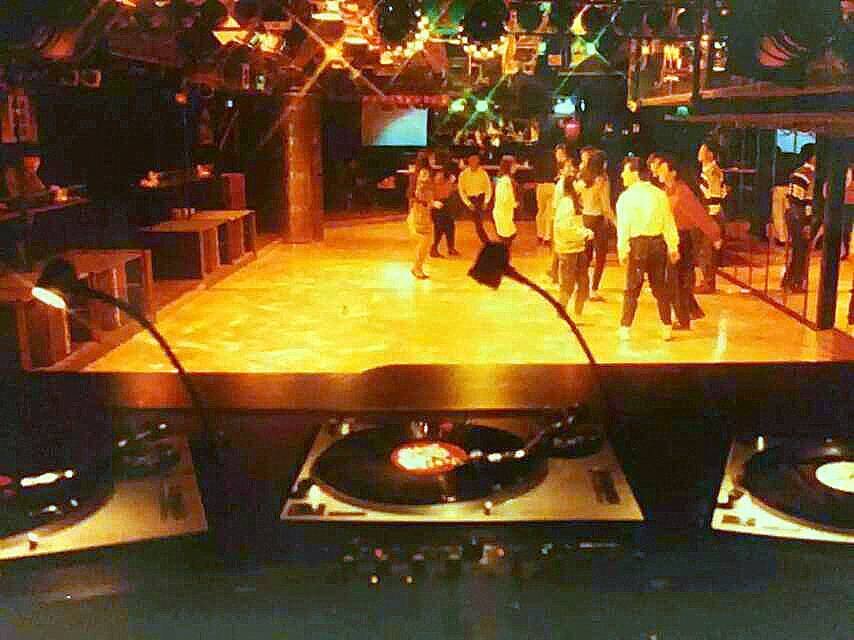
Throughout the rest of the 70s and into the early-80s, Bull remained a fixture in Hong Kong’s party scene, having found homes at the Peninsula Hotel’s The Scene, Disco Disco, and myriad other clubs. However, in March 1985, he decided it was time to hang up his headphones and make way for a new generation of DJs and bands by opening his own club, Canton Disco. The opening night saw drag-queen superstar and John Waters’ muse, Divine, play her characteristically raunchy and raucous set, followed by a string of high profile acts, from Run DMC to New Order and Pet Shop Boys to Erasure, not to mention Kylie Minogue’s first-ever live performance, thereby introducing a new wave of music to Hong Kong’s masses.

As Bull’s profile continued to grow, so too did his parties and ambitions, culminating in 1997’s Unity: The Great Hong Kong Handover Party, an event that would solidify his place in the annals of Hong Kong – and greater China – history books. Interestingly, the party itself took shape in Bull’s mind during a trip to Beijing.
“As we got a few months away from this handover date that Hong Kong had been waiting for, for 150 years, I realized that nobody had put on an event. There was the event with Prince Charles and [outgoing governor] Chris Patten, but there was nothing for regular people to mark this bittersweet moment,” explains Bull. “I was doing a gig at a place called Nightman in Beijing, and I took a stroll one night and there was this flea market, and this guy selling these posters with all the famous buildings in Hong Kong and it said, ‘Welcome back to the motherland’ or something like that. So I thought if I hijack that IP – with all due respect to whoever actually painted it – if I stuck Paul Oakenfold and Boy George and Grace Jones on that poster, and put that in a newspaper in Hong Kong, it would turn heads, and we might sell a few tickets.”
Much to Bull’s surprise, he sold more than a few tickets, ultimately drawing a crowd that was 12,000 strong. “I took the gamble. I built the event based on that poster. And it worked.”
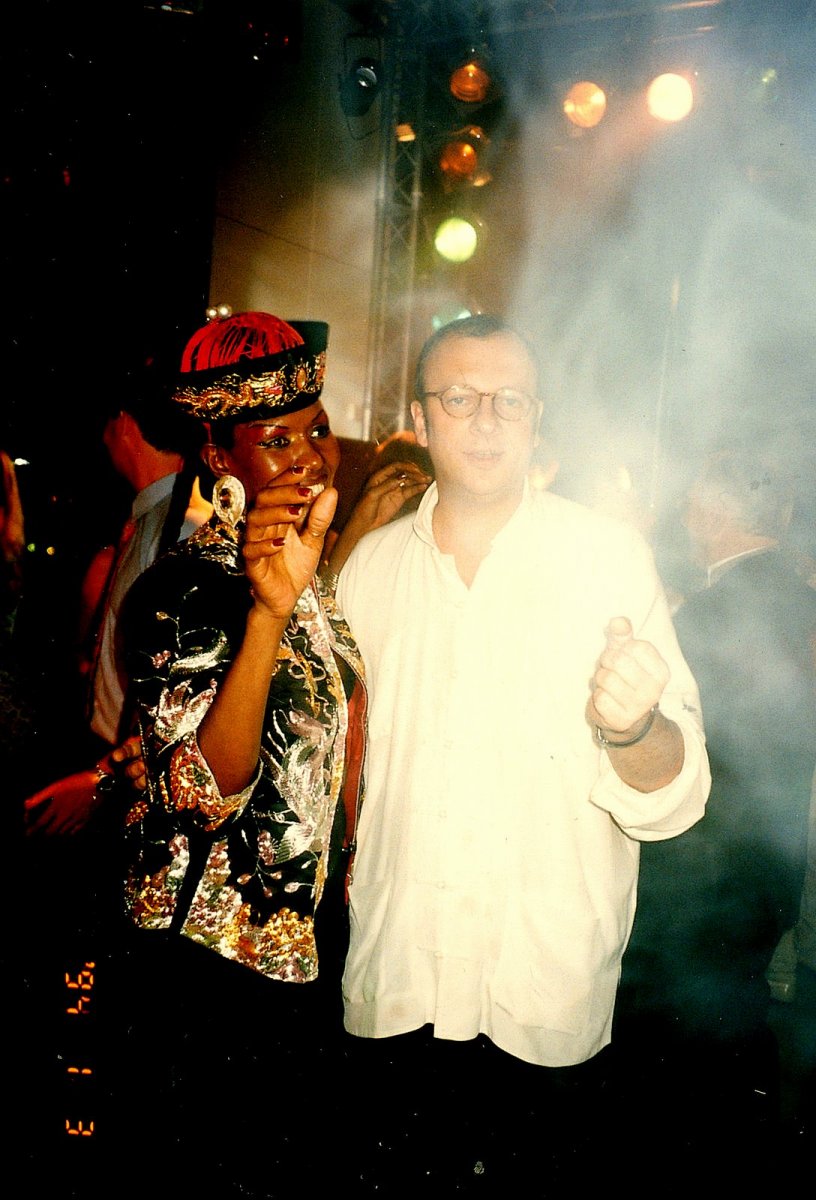
While it might be the most famous party Bull ever threw, it's far from the only one, as he was responsible for bringing a litany of other acts over to China, including Depeche Mode, Paul Simon, Björk, and DJ Sasha. Although the row she caused in 2008 is quite well-known, for a moment, the show that Bull organized for Björk in 1996 at the old Workers’ Gymnasium in Gongti was plagued with similar accusations of disrespect. As Bull recalls, “These guys that we sold the show to from the Cultural Ministry wanted to have this bizarre MC announce the show and we said this is bullshit, it’s not going to happen. But then we finally compromised and said that the MC could say whatever she was going to say before the opening act, not before Björk.” As is wont to happen in such situations, however, something got lost in translation. Namely, the fact that there was an opening act.
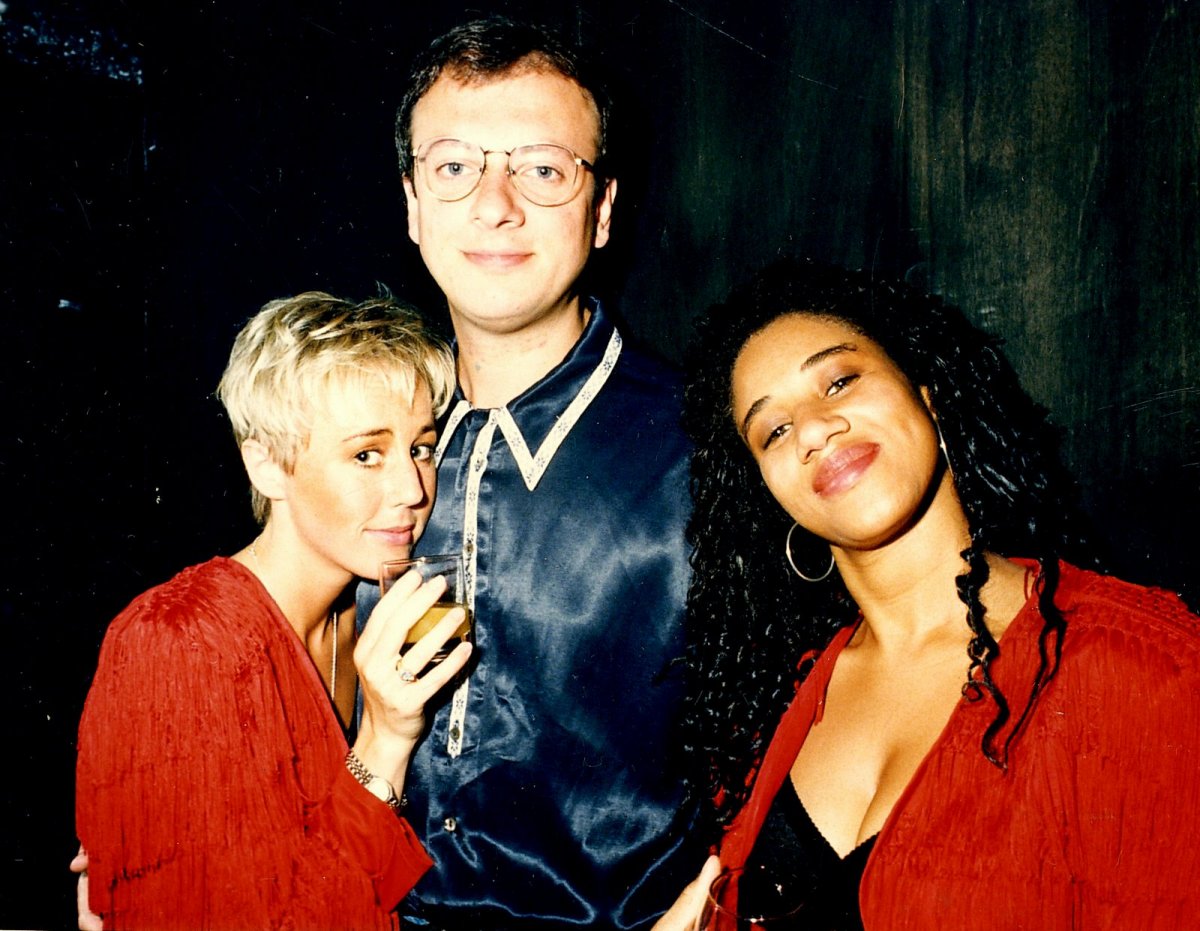
“So basically we had this person come out and announce, ‘The Famous Icelandic singer, Björk!’ and out came these two dudes who play this really droney electronic, sort of deep techno stuff with no vocals. So the people from the Cultural Ministry started getting outraged cause they were waiting for the singer to start, and there was no singer, and suddenly there was this platoon of troops, like 18 men with rifles rushing the dressing room trying to drag Björk out, who they thought was disgracing or hurting the feelings of the Chinese people by not coming out when in fact, she was not supposed to be coming out.” Before they had a chance to enter the room, however, Bull’s wife Sally Kwok and Björk’s manager were able to keep the men at bay until Bull returned and had an opportunity to explain to them that this was, in fact, just a warm-up act and that Björk would be going on shortly, and the show proceeded normally with the audience having no idea what happened behind the scenes.
There’s little doubt that Andrew Bull’s limitless ambition, knack for savvy marketing, and well-heeled personal connections have paved the way for generations of music fans and aspiring DJs who have followed in his wake, forever changing the landscape of music across China along the way. What’s more, he’s been around long enough to see the music he helped pioneer in the 70s, 80s, and 90s come full circle, once again finding its place on the club circuit. How does it feel to reflect on the impact he’s had on China’s market over the years? “It feels good to be reminded that stuff that happened 20 years ago or even longer has resonated in ways that you’d never expect,” says Bull. “That’s interesting for me because disco wasn’t exactly the flavor of the month for years. But now, I walk into a bar and they’re playing my shit and I’m like, whoa! Then I’ll read an interview with somebody like Joel Lai who is a DJ legend in Hong Kong, and he’ll say something like, ‘I was first inspired to be a DJ by listening to Andrew Bull and going to Disco Disco in Hong Kong.’ So there are a few times a year people say something, and it blows my mind.”
Now, 50 years later and with a career spanning disco, new wave, house, techno, and more Bull is embarking on a multi-city tour entitled 50 Years on the Decks: 1970-2020, which will hit Dada Beijing on Friday, Nov 20. Asked what people can expect, Bull says the evening will probably oscillate between, “some old guy who should know better in the DJ booth playing god knows what to something that makes you look at the person next to you and say, ‘I think I just had a disco orgasm.’”

While that answer is entirely perfect in every way, Bull clarifies, “The thing with disco and house music is the same in many ways,” and while “you can’t always join the dots that easily [with other genres] as the eras go by, I felt that our music lived on in house music in many, many ways.” As such, his goal is to “weave music and take people on a journey out of themselves, and for people to lose their shit in ways they never knew was possible.”
"That’s the magic to me, the connection between the music. So when people ask me what kind of music I’m going to play, I just say Eternal House.”
Catch Andrew Bull's 50 Years On the Decks: 1970-2020 at Dada Beijing this Friday, Nov 20. And to check out a rare recording of one of his sets from Disco Disco in 1981, click here.
READ: Lantern Announces Opening of New Three-Room Venue Near Dongdaqiao
Images: Courtesy of Andrew Bull, Dada Beijing





